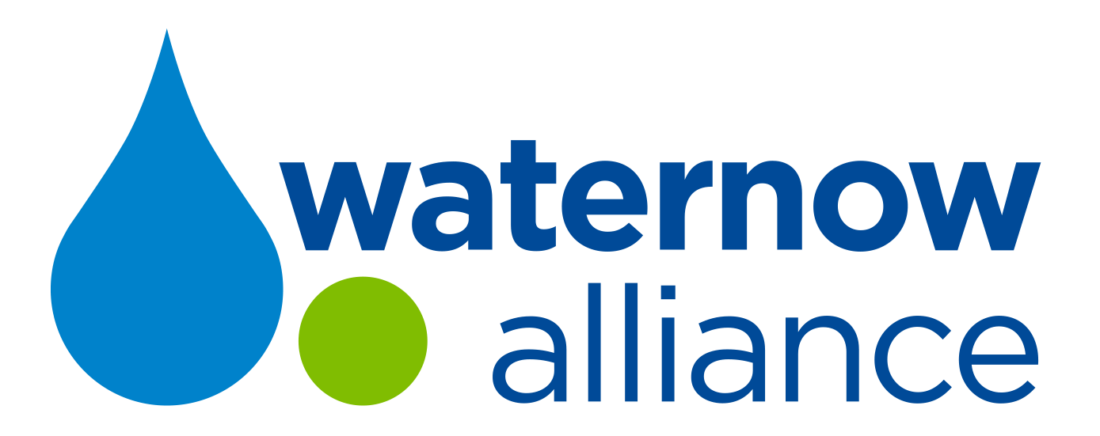On March 28-29, 2018, more than a hundred water leaders will come together for WaterNow Alliance’s 3rd Annual Summit to focus on sustainable water solutions and creating more resilient communities. This event attracts the top minds on Western water to present on pressing local, state and national water issues, developments, and opportunities. We’re thrilled to announce that we will be joined this year by Robert Glennon, one of the nation's preeminent water policy experts.
Author of Unquenchable: America's Water Crisis, Water Follies: Groundwater Pumping and the Fate of America's Fresh Waters and most recently, Shopping for Water: How the Market Can Mitigate Water Shortages in the American West in collaboration with the Brooking Institution, Prof. Glennon has been tackling water issues since the 1970s.
WaterNow’s Sarah Musiker caught up with Professor Glennon this week to learn more about his current work and reflections on the current state of water. “We’ve made a lot of progress across the board,” Professor Glennon says, “but it’s still not enough. The last half of Unquenchable is about what solutions we can utilize to help address the water crisis.” He focuses in on four key solutions to help ensure sustainable water futures:
Conservation: “Look at most of California and cities like Albuquerque, NM – they’ve seen great success in conservation that has been primarily driven by the drought. When there’s a crisis, people start waking up. They’re willing to change, but we have to help them.”
Immediately accessible data can be essential for customers to understand and reduce their water use. But when people are only paying $30-$40 per month for their water, they’re unlikely to want to purchase a $700 smart device to monitor their in-home water use. “City officials will have to make these decisions,” Glennon insists. “Cities will have to leverage capital markets so that they can pay for it, but this is essential towards moving the bar.”
Reuse: Droughts have created opportunity for expanded water reuse. In many communities, reclaimed municipal wastewater is an underutilized resource. “From golf courses, parks, and cemeteries, to industrial operations and even on highway medians, there are so many opportunities for non-potable reuse.” Onsite water reuse in homes – such as rainwater cisterns – also provides opportunities for home water recycling where potability is less of a concern.
Price Signals: Price signals help to ensure conservation: “as prices go up, people start to save.” Some cities are increasing block rates with seasonal variations; by increasing summer rates, utilities can force users to be more aware of how much they’re watering their lawn or filling their pools. Additionally, around the country, communities are moving to upgrade their systems, sometimes costing hundreds of millions in infrastructure improvements which increases rates on the user end. As WNA has discussed in recent webcasts and presentations, this can result in push back from the customer. “Communicating with the ratepayer is key,” says Glennon, “we need to respond to them by reminding them that if they didn’t conserve, prices would have gone up even more.”
Market Forces and Agriculture: The market can help mitigate American water shortages in the West. “A lot of cities blast farmers for being heavy water users, but anything you grow takes a lot of water. But what is less well understood is that a slight decrease (2-3%) in agricultural water consumption can translate into a 50% increase in the water available for municipal and industrial users,” Glennon shares.
“Farmers are land rich and cash flow poor,” Glennon continues. One of Professor Glennon’s more provocative ideas is that: “If cities pay to modernize farm infrastructure, they should be able to secure some of the water that the farmers conserve. Farmers will produce as much as before, and while cities gain the additional increment of water they need.”
Ultimately, none of these solutions can be achieved on their own. Increasing awareness from the public is essential to achieving progress. Prof. Glennon cites cities like San Antonio and Albuquerque that have had success in raising awareness by putting forth an uncomplicated message. They provide regular bill inserts explaining pricing and service and separate out water from other services as to not confuse customers. “Give people a message every time, and stick with it,” Glennon recommends. “Lots of programs from replacing high-water use toilets to encouraging purchase of front loading washing machines are happening. Establishing a strong conservation ethic can be done, but it takes time.”
Overall, Glennon is very optimistic. “Is the water crisis real? Yes, but we have the tools to address it. Now we just need the political will and the moral courage to act. Currently, we’ve got the water, but we’re throwing it away. There is no one perfect solution, but the worse thing we can do is continue on with ‘business as usual.’”
To hear more from Professor Glennon and our other incredible speakers, be sure to register today for the 3rd Annual WaterNow Alliance Summit in Salt Lake City, UT on March 28 - 29, 2018. This event is free and limited travel funding is available for WaterNow Alliance Members.

